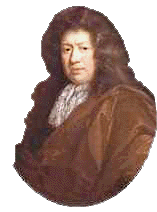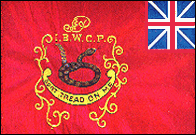The ravings of Hong Kong's most obnoxious expat
18-24 January 2004
hemlock@hellokitty.com



"Is pho safe to eat?" asks a voice on the radio. Uninterested in the answer, I switch it off. The most pressing question in my mind – what shall I have for lunch? – has been answered. Soon after, I stroll down a dark alleyway beneath the Mid-Levels Escalator and enter one of the grimiest Vietnamese restaurants outside Indo-China for a bowl of sour broth with noodles, bean sprouts and thinly sliced beef, which turns from bright pink to pale brown as I stir it in. Never let it be said that RTHK fails to inspire.

Chinese New Year drifts up and down the post-gym-joining, booze-resuming period of the gwailo calendar, coming as early as 21 January or as late as 19 February. Wherever it moves, a strange meteorological phenomenon follows it – chilly precipitation, seemingly lured by the irresistible prospect of a public holiday. Such thoughts pass through my mind as I stand shivering in line on the cold, damp sidewalk, waiting my turn with hundreds of others to buy the latest edition of Spike magazine. Why is this publication proving so popular? Is it the biting satire, leaving tycoons and officials, the pompous and the hypocritical, licking their wounds after the magazine’s verbal savagings? Sadly not. Could it be the dirt-digging, investigative journalism, fearlessly exposing the links between business and government, ruthlessly toppling the corrupt and the criminal from high office? Not so far. As I leave, eagerly clutching this highly sought-after read, I hear a commotion behind me. In a scene almost from a famine, half a dozen people are fighting viciously for the newsstand’s – and maybe Hong Kong’s – last remaining copy. The secret of Spike’s success suddenly occurs to me. Where else can subscribers to The Spectator and Quamnet.com get a second look at articles they’ve already read? What other magazine offers such convenience?
Tue, 20 Jan
Pre-New Year inactivity. Near the top of S-Meg Tower, in the heart of Asia's leading international financial centre, Ms Fang the hunter-killer secretary enters the Company Gwailo's office with a knock on the door so cursory that it is simply assumed to have happened. "Company laisee," she announces, dropping the red envelope on my desk and stepping out again. Boring. The same, immaculately folded HK$100 that everyone on the payroll gets. The real Chinese New Year lucky money comes after the holiday, when the Big Boss dispenses some of his good fortune among a more select group of his loyal gophers, retainers and factotums. A real knock at the door announces the arrival of the bearded, antipodean event organizer/public relations man, just dropping by to say hello – as in "hello, do you know anyone who needs some event organizing/public relations work?" The tragic figure is hoping to get a job helping the Independent Commission Against Corruption prepare its 30th anniversary activities. "Fighting corruption without fear or favour," he declares. "Or looking too hard at the really big people," I add. He wonders aloud how he can get the contract. "Easy," I say, flicking the laisee packet across the table and grinning. "Oh, very funny," he murmurs, obviously dazzled by my astounding wit. He leaves, and I wonder what to do with this shiny, HK$100 bill, with its sharp crease and its arousing, sensual aroma. It would cover a third of the cost of a bottle of decent Pouilly Fumé. Four copies of Spike – if they can be found. Five sixths of an HSBC share. Two beers in Lan Kwai Fong during 'usury hour'. Or... four during the afternoon. Problem solved.
Wed, 21 Jan
A blast of freezing air from Mongolia hits Hong Kong – nature’s way of keeping down the number of street sleepers. While sanitation workers load the frozen, ragged corpses into vans, the city’s middle class glides overhead down the Mid-Levels Escalator. Some are heading to the office, for a half-day of idling before starting their New Year festivities. Four days of tedious filial ritual, eating, dressing children in gaudy costumes and visiting tiresome relatives. Others are dragging suitcases on wheels, en route to the downtown check-in and a flight to a Southeast Asian beach, where they will buy trinkets and juice from dusky natives who hide their loathing behind massive grins.
The big excitement as we are transported down the hill is the victory of John Kerry in the Democratic caucus in Iowa. I vaguely recall passing through the place once – rather like Wisconsin, but without all the excitement and perversion. The consensus on the Mid-Levels Escalator this cold morning is that candidates’ names make a difference. Who could bring themselves to vote for the slightly obscene-sounding Dick Gephardt, let alone for something they can’t even pronounce, like Mr Kucinich. Voters prefer simple Anglo-Gaelic names like Kerry, Edwards or Dean. Or Bush.